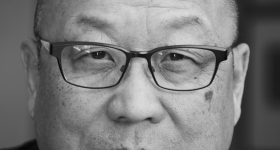I have a friend who drinks hot coffee through a straw. The first time I saw her stick a straw through the lid of her coffee cup, I honestly thought that she had made a mistake.
“It’s the best way to drink coffee, ya’ll!” she said cheerfully (she’s a Southern belle).
Naturally, I was quite dubious about her claims. But I was curious, so one day, I, too, put a straw in my coffee.
Oddly enough, she was right. A straw makes it much easier to drink when driving because you don’t have to tilt your head back. Depending on the type of lid, a firmly wedged straw helps keep the coffee from spilling out. And, if you’re of the easily-amused persuasion, you can blow bubbles into your drink. By the end of the quarter, the majority of coffee drinkers in our class had spiked their cups with green and orange straws.
I have no idea where she got the idea to do that. Maybe it’s something they do in Georgia or Alabama. I really don’t know. Whatever it is, it seriously shook up our coffee culture at Northwestern, and it was awesome.
I bring this up because the CNN/Opinion Research Corporation recently conducted a national survey on Americans’ views on immigrants. Not undocumented immigrants, mind you, but all immigrants who came to the US in the past 10 years.
While the vast majority surveyed said that most immigrants are basically good, honest and hard-working, nearly 70 percent believed that immigrants are a burden on the taxpayer, 62 percent think they add to the crime problem, and 59 percent believe they take jobs away from Americans.
Additionally, 60 percent of whites say that immigrants should give up some important aspects of their culture to blend in. Only about 40 percent of Hispanics and blacks hold the same view.
“Give up some important aspects of their culture to blend in.” What does that even mean? Should immigrants give up their religious beliefs? The foods that they eat? The way they celebrate their community? The languages they speak?
What kind of person is left if you take all those things away?
I’ve heard conservative commentators say that biculturalism is divisive and threatens the social fabric of America. Well, yeah, if you look at it that way! Biculturalism is not some evil force trying to take over the country; it’s a natural, and integral, part of people’s lives. I mean, would we ask Catholics to give up the authority of the Pope just because the US is a predominantly Protestant nation? Does that mean Jewish people shouldn’t keep kosher or Muslims halal? It’s when you target people’s differences and demand change that it becomes a divisive force.
I know I’m seriously over-simplifying the issue here, but what if we had told my coffee-through-a-straw friend: “You’re not in the South anymore, so drink your coffee through the lid like everyone else here.” We would’ve missed out on a pretty cool exchange! But as it was, all the straw-sippers and lid-gulpers were able to share their various coffee-drinking philosophies and co-exist in a glorious caffeinated harmony.
It might seem strange or weird that immigrants hang on to their culture or language, but I think it’s wrong to say that they don’t want to assimilate. Immigrants know how important it is to adopt certain practices in order to fit in. But what many commentators don’t consider is the cost.
There are children of immigrants who speak English so fluently that they hardly know any of their ‘native’ language at all. Sure, it might make it easier for them to blend in with the monolingual masses. But they probably won’t ever really know their own parents or grandparents because they literally do not have the words to do it, and vice versa. I think that the simple act of talking to a parent or grandparent is one that critics of immigrants take for granted. But that’s the price immigrants pay for assimilating. Every parent wants their child to succeed, but how many would say that it was easy to give up the ability to talk and joke with their child?
I’m not saying that assimilation is a bad thing or that it shouldn’t happen. I’m saying, try to understand that it’s basically asking people to lose a part of themselves. It’s not an easy decision to make. It’s not an easy choice to live with. Trust me -- I’d give anything to be able to talk with my mom as easily as I do with, say, my boss. I would love it if she could read my articles and really mean it when she says, “I thought it was interesting.” Don’t get me wrong, I’m very appreciative to have my rockin’ English skills. My parents sacrificed a lot for this to happen. But sometimes it feels like a hollow victory.
So what are your thoughts? Should immigrants give up important aspects of their culture in order to blend in? Do you think it’s worth it if they do? Would it be so bad to have a multicultural America? And, most importantly, how do you drink your beverages?
Sound off. I’ll be over here blowing bubbles into my coffee. Ya’ll.










Comments
Asian Americans arguably assimilate the most of any other immigrant groups, adopting Anglo names for their children, with many 2nd generation AA's ignorant about or deliberately rejecting their heritage/identity/ethnic language, and end up thinking, dressing, talking, buying, and voting (and marrying) "White" in order to be accepted. Assimilation mindset among Asians ultimately internalizes, upholds, and defends White Privilege (and in extreme cases White supremacism). Additionally, because they aren't adopting a multi-cultural mindset, when many Asian immigrants say "American" they really mean White American. Conservative pundits obviously love assimilation and hate multiculturalism, especially the ones who think only White Americans are real Americans.
Despite their assimilationist behaviors, from surveys compared to other immigrant groups Asian Americans are still considered more foreign, un-American, untrustworthy, and other negative qualities. You have lawmakers now in Texas demand that Asians adopt easier to pronounce names, and not call out any other groups on this. Despite assimilation, Japanese Americans were disproportionately targeted more during WWII than German or Italian Americans. The assimilation mindset is also related to why so many Asian Americans can be found to be used to defend/excuse any number of offensive or racist or discriminatory actions against Asian American communities. The list of apologists is LONG. The most extreme example of assimilation mindset is when it turns into "Uncle Tom" pandering behavior, exhibited in people like Michelle Malkin or Amy Tan. It's debatable whether assimilation has been more beneficial for Asian Americans than a multicultural strategy.
As a result of the extreme assimilationist mindset, there is no Asian American demographic/segment in America whether it comes to marketing or politics, despite the fact that Asian American consumer power is actually higher than African American consumer power, and is the fastest growing population segment for potential votes. Compare this to other organized groups like AIPAC or the NAACP or LGBT, which politicians make sure to appeal to during election cycles. Because so many Asian Americans adopt an assimilation mindset, this is why even in AA-dense areas in America, political or media representation is disproportionately low.
America's democracy and entire political system, as well as its consumer culture and media/entertainment markets, are dictated by which groups can vote, buy, or act in solidarity the best (as well as influence their networks to act, think, vote, and spend the same way they want). Those groups that act the strongest tribally (some may say "ethno-centrically"), benefit the most. This isn't just related to racial groups but also gender groups, sexual orientation, or any other issue that people can organize under.
Far too often Asian Americans say they'll vote on the political issues (without making Asian or Asian American issues a part of their consideration), or state they'll purchase or support entertainment based simply on quality, without realizing that media and entertainment casts roles and gives opportunities based on community support (which oftentimes ends up simply being a reflection of tribal strength). Media images and politicians in turn have massive effects on societies and acceptable social norms. The biggest lie about casting is that the best talent was chosen from auditions - much more often than not, roles are given out based on predictions of how much revenue can be generated from a market segment (that is, when the roles aren't being given based on tribalism). Because Asian Americans don't support "their own" politically or economically, there is no incentive for others to cater to Asian Americans or to the community's self-interests.
In the assimilation vs multi-multiculturalism debate, relatively more Asian immigrants (and their children as a result) choose assimilation much more than other groups do, and I believe it unwittingly harms their communities more. I think in a counter-intuitive way, Asian Americans will eventually gain more respect and acceptance as Americans (more so than from the past 150+ years in America), by holding onto their heritage in the melting pot and making more parts of their culture considered American.
P.S. Chinatowns, for the poorest immigrants without options to live elsewhere, were created initially because Asian immigrants who initially tried to live among White communities were murdered. Nowadays, Asian immigrants and Asian Americans with the financial means to do so oftentimes move to the suburbs, and don't really seek to live together in a way that some other immigrant groups do.